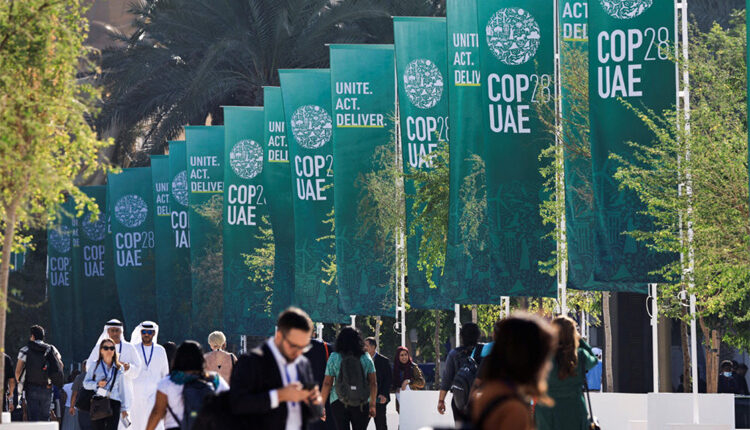UN draft: Developing nations expect trillions for climate mitigation efforts
A draft document on the new climate finance goal, to be negotiated at the UN Climate Conference COP29 in November, indicates developing countries expect contributions in the trillions from developed nations for climate change mitigation efforts.
HT has reported that setting a new climate finance goal will be the primary agenda at the annual UN climate meeting when it convenes for this year in Baku, Azerbaijan. The current goal has a floor of $100 billion annually after 2025.
According to the document, the Like Minded Developing Countries (LMDC) group, which includes India, expects at least $1 trillion mobilised by developed countries yearly from 2025 to 2030, with updates until 2035 based on evolving needs.
“The quantum set in the NCQG (New Collective Quantified Goal) will be active from 2025-2030 and be updated for 2030-2035 in 2029, in line with the Nationally determined contributions (under Paris Agreement) cycles and others processes under the UNFCCC, to be adjusted according to the evolving needs of developing countries,” the group stated.
The United States, however, has not specified a number or timeline. It expects contributions from all sources, including “contributing parties,” and proposes “a goal of investing USD [X] trillion globally in climate action by [timeframe] from all sources” — leaving those specific details up for discussion.
The Arab group expects developed countries to mobilise $1.1 trillion annually to developing nations from 2025 through 2029, providing a minimum of $441 billion per year. The African group calls for developed countries to jointly mobilise $1.3 trillion annually by 2030, with an aggregate goal of $6.5 trillion.
These positions highlight the polarised stance between developed and developing countries. The U.S. and other wealthy nations have attempted to blur the distinction that finance should flow from developed to developing countries, as specified in UNFCCC principles — instead, they are pushing emerging economies to contribute.
Negotiations on the new finance goal have faced challenges and lack of consensus. Major differences emerged between rich and developing countries during an Ad Hoc Work Programme in Cartagena, Colombia, in April. The U.S. described the New Collective Quantified Goal as “voluntary” for those that “choose to pay.”
At the next meeting, held at Bonn over two weeks, there was no progress. The United States reiterated its stance that contributing to the new fund should be voluntary, and argued that NCQG is separate from UNFCCC provisions, potentially to avoid mentioning developed countries’ obligation to deliver climate finance to developing countries.
Developing countries and climate activists criticised developed nations for attempting to broaden the contributor base and shirking their responsibilities.
The dispute harks to a fundamental principle known as the “common but differentiated responsibilities and respective capabilities” (CBDR-RC). The principle was formally adopted as part of the UNFCCC when it was established at the Earth Summit in Rio de Janeiro in 1992.
Largely, the principle lays down that developed countries have contributed more to global greenhouse gas emissions historically and are therefore expected to take the lead in addressing climate change.
It implies that developed countries should provide financial resources to support developing countries in their efforts to mitigate and adapt to climate change and recognises that countries have different capabilities to address climate change based on their economic and technological resources.
The US stance on voluntary contributions and attempts to broaden the contributor base appear to conflict with this principle.
COP29 president-designate Mukhtar Babayev said in a statement: “This latest input paper is a significant step towards preparing concrete proposals for a fair and ambitious new climate finance goal at COP29. We have come a long way but there are still clearly different positions we need to bridge.”
Babayev added, “We now only have 73 days before COP29 begins and Parties need to accelerate their engagement on this top negotiating priority to reach consensus.”
“Reaching an agreement on the new climate finance goal at COP29 in Baku is about climate justice. Despite being on the frontlines, developing countries have ambitious plans to scale up renewable energy and address climate impacts, yet they receive inadequate support. Meanwhile, wealthy, industrialized nations continue to fund the very fossil fuels driving this crisis. Without urgent and equitable financial commitments — measured in trillions — the promise of climate action will remain broken, leaving the most vulnerable to pay the price for others’ inaction,” Harjeet Singh, Climate Activist and Global Engagement Director for the Fossil Fuel Non-Proliferation Treaty Initiative said.


Comments are closed.